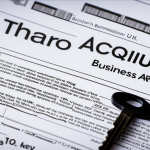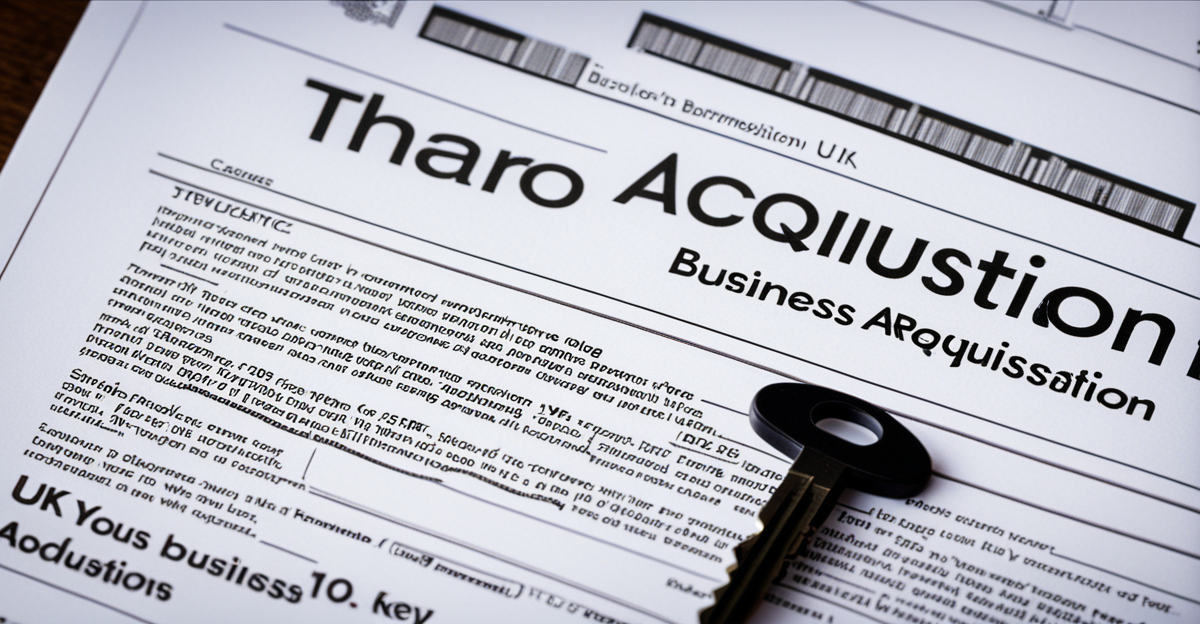Key Legal Considerations in UK Business Acquisitions
When navigating UK business acquisition laws, understanding the primary legal frameworks is crucial to ensure compliance and protect your investment. These laws establish the foundation for how acquisitions are structured and executed. Within UK business acquisitions, two main structures exist: asset purchase and share purchase. Asset purchases involve buying specific company assets and liabilities, while share purchases transfer ownership by acquiring shares. This distinction matters legally as it affects liability, taxation, and contractual obligations.
Adhering to legal requirements for business acquisitions ensures all parties comply with statutory duties, reducing risks of disputes or deal failure. For instance, compliance with company law, disclosure obligations, and competition regulations are vital. Ignoring business purchase legalities UK can trigger significant penalties or invalidate contracts, slowing or derailing the transaction.
Also to read : What are the legal responsibilities of UK businesses towards consumer protection?
Understanding these legal principles empowers businesses to negotiate confidently and complete acquisitions that safeguard their interests. Consequently, engaging legal expertise early in the acquisition process streamlines compliance with UK business acquisition laws and clarifies complex transaction mechanics.
Conducting Due Diligence in UK Acquisitions
Due diligence UK acquisitions form a pivotal part of the legal due diligence process, assessing all dimensions—legal, financial, and commercial—to uncover risks before completion. The primary objective is to verify facts, identify liabilities, and evaluate contractual and regulatory compliance, ensuring confident decision-making.
Topic to read : How Does Brexit Impact UK Business Legal Frameworks?
Legal due diligence focuses on scrutinising contracts, intellectual property rights, litigation risks, and compliance with UK business acquisition laws. Typical issues discovered include undisclosed liabilities, unresolved disputes, or regulatory breaches that could impede the deal or increase post-acquisition costs.
Risk assessment in business acquisition relies heavily on thorough due diligence to quantify potential exposures. Professional advisers and solicitors play a crucial role by providing expertise, ensuring all relevant documents are examined and advising on how specific risks should influence terms or negotiations.
Without a comprehensive due diligence process, buyers risk inheriting hidden problems or regulatory non-compliance. Therefore, legal due diligence in UK acquisitions is indispensable to meet legal requirements for business acquisitions and navigate complex business purchase legalities UK efficiently.
Regulatory and Antitrust Approval Processes
Navigating UK regulatory approval business acquisition is essential, especially when transactions hit thresholds requiring mandatory notifications and filings. Deals exceeding specific turnover or market share levels must notify the Competition and Markets Authority (CMA) before proceeding. The CMA conducts a detailed antitrust examination to prevent market dominance harming competition.
The antitrust laws UK focus on identifying mergers that could substantially reduce competition. If the CMA deems a deal problematic, it may impose remedies or even block the acquisition outright. Understanding these rules helps businesses anticipate delays or conditions affecting the transaction finalisation.
Certain sectors face additional scrutiny. For example, FCA-regulated businesses undergo review by the Financial Conduct Authority (FCA) to ensure acquisitions comply with financial market standards and protect consumer interests. These sector-specific rules add complexity, making early regulatory engagement advisable.
By complying with business purchase legalities UK through thorough preparation for regulatory filings, parties reduce risks of penalties or failed deals. Professional guidance is critical for interpreting thresholds and ensuring seamless navigation of CMA and FCA approval processes in line with UK business acquisition laws.
Contractual Requirements and Transaction Documentation
When completing a UK business acquisition, business acquisition contracts UK form the legal backbone of the transaction. The sale and purchase agreement (SPA) is typically the central contract, outlining key terms such as the purchase price, warranties, indemnities, and completion conditions. This document binds buyer and seller, ensuring clarity and enforceability of their obligations.
Warranties and indemnities provide crucial buyer protections by addressing the accuracy of information shared and allocating risk for post-completion issues. For example, warranties confirm facts about the target business, while indemnities cover specific liabilities like undisclosed debts or litigation. Negotiation of these provisions directly influences risk allocation and deal price.
Other important documents include heads of terms, which set out preliminary agreements and guide subsequent contract drafting. These documents may address confidentiality, exclusivity, and timelines.
Effective handling of these contractual requirements aligns with business purchase legalities UK, minimizing dispute risks. Professional legal advice is essential to craft precise agreements that reflect complex transaction aspects and protect all parties under legal requirements for business acquisitions.
Tax Implications of Business Acquisitions in the UK
Understanding UK business acquisition tax is vital, as tax consequences vary significantly between asset and share purchases. In asset purchases, buyers acquire specific assets and liabilities, often triggering stamp duty on property transfers and potential capital gains tax for sellers. Conversely, share purchases usually incur stamp duty reserve tax on share transfers but can offer tax efficiencies by preserving group reliefs and avoiding direct asset transfer taxes.
Tax due diligence is a critical component, identifying hidden liabilities such as unpaid taxes, deferred VAT, or historic tax risks that might affect the transaction’s value. Conducting thorough tax due diligence limits post-acquisition surprises and supports informed negotiations on price adjustments or warranties.
Mitigation strategies include structuring the deal to optimise tax outcomes, such as using holdco structures or considering timing for transactions to align with tax reliefs. Recent changes in UK business acquisition tax law, including updated rules on carried interest and anti-avoidance measures, further complicate planning, underscoring the importance of expert tax advice.
Effectively managing tax liabilities ensures compliance with legal requirements for business acquisitions and supports smoother deal completion, reducing risks associated with unexpected tax burdens.
Employment Law and TUPE Transfers
Understanding UK employment law business acquisition is vital when completing acquisitions, particularly how the TUPE regulations UK apply. TUPE (Transfer of Undertakings (Protection of Employment)) safeguards employee rights during a business transfer. It automatically transfers employees from the seller to the buyer, preserving existing contracts and continuity of service.
When does TUPE apply? It generally covers transfers of a business as a going concern, including asset purchases involving ongoing operations. Failure to comply with business purchase legalities UK concerning TUPE can lead to costly claims for unfair dismissal or breach of contract.
Employers must fulfil strict consultation and information requirements. This includes informing and consulting employee representatives before the transfer. If consultation obligations are neglected, financial penalties or tribunal claims may arise.
Managing redundancies or changes to employment terms after transfer requires careful handling under UK employment law business acquisition standards to avoid disputes. Buyers should review workforce structures during the legal due diligence process and seek tailored legal advice.
Properly navigating TUPE and employment law aspects mitigates risk, ensuring employee rights are protected while aligning with overall legal requirements for business acquisitions in the UK.
Compliance Procedures and Recent Updates
Ensuring compliance business acquisition UK is imperative for avoiding legal pitfalls and meeting legal requirements for business acquisitions. Key steps include thorough documentation review, early regulatory notifications, and adherence to sector-specific rules. Buyers and sellers must work closely with legal advisers to implement robust compliance frameworks covering all aspects of the transaction.
Non-compliance can result in substantial penalties, deal delays, or even invalidation of contracts under business purchase legalities UK. For example, failing to submit timely filings to the Competition and Markets Authority (CMA) or neglecting required disclosures risks enforcement actions and reputational damage.
Recent updates in UK business acquisition laws introduce stricter transparency obligations and enhanced scrutiny of antitrust and employment compliance. Staying current on legislative changes, such as amendments affecting data protection during acquisitions, is critical for all parties involved.
Best practices for business compliance UK recommend integrating compliance checks into the acquisition workflow from the outset. This proactive approach minimises risks and helps ensure a smoother transaction process. Engaging expert advisers who monitor evolving laws and deliver tailored advice remains essential to navigate complex compliance challenges effectively.







